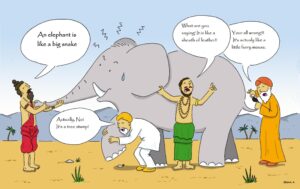Happy Global Business Analysis Day! This day is in celebration of all Business Analysts and practitioners of Business Analysis across the globe (whether your job title reads ‘Business Analyst’ or not 😊).
Beyond all doubts, the domain of Business Analysis has grown and evolved significantly since October 23, 2003, when 28 professionals came together in Toronto, Canada to establish an institution now known as the International Institute of Business Analysis (IIBA).
True to its mandate, the IIBA has effectively established itself as the main global thought leader as well as the foremost promoter of both the practice and the practitioners of Business Analysts.
Over the years, various reference frames, events, curated content, guides, competency models, certifications, communities, and other resources have been designed, deployed, refined, and continue to be improved to ensure the global community of Business Analysts never lacks proper direction for growth and development.
In the last decade, I have had the privilege to act as a volunteer for IIBA. First aiding in the setup up of the Nigerian Chapter of IIBA (2nd chapter in Africa) in 2009 and going on to serve as a volunteer in different capacities under the IIBA Chapters in Nigeria and Canada.
However, despite being proud of the progress the global business analysis community has made in seventeen years, I believe that there is more to be done.
There are, indeed, more mountains to conquer!
At the very top of this list of mountains to conquer, is the struggle to ensure both organizations and individuals truly understand what business analysis is, as well as the value its practice brings to the table – across different perspectives and beyond job titles!
And here is where my idea of the proverbial elephant comes into the picture, an analogy based on an old parable about “THE SEVEN BLIND MEN & THE ELEPHANT“, which originated from India and was made famous by Jalal ud-din-i Rumi, a Persian Muslim theologian and poet. This parable has been used over several centuries to illustrate a range of truths and fallacies.

The parable owes its origin to the story of the seven blind who had no knowledge of what an elephant looked or felt like and so decided, ‘Even though we would not be able to see it, let us go and feel it anyway.’
They all fell into a heated argument as to who was right in describing the big beast, all sticking to their own perception. A wise sage happened to hear the argument, stopped, and asked them “What is the matter?” They said, “We cannot agree to what the elephant is like.” The wise man then calmly said, “Each one of you is correct, and each one of you is wrong. Because each one of you had only touched a part of the elephant’s body. Thus, you only have a partial view of the animal. If you put your partial views together, you will get an idea of what an elephant looks like.”
This story clearly illustrates how the biases we have accumulated over the years and limited experiences; or worldviews often blind us, preventing us from seeking a more holistic understanding of things and subject matters.
Just like the story of the elephant and the blind men demonstrate, Business Analysis requires multiple perspectives for a holistic understanding.
Conclusion
At the very bottom of it all, Business Analysis is all about enabling change. Change that comes about by ensuring the underlying cause of a problem is identified and understood, before proffering a solution to the problem that impacts capability, and value to all stakeholders involved.
Also, in proffering solutions, and focus is placed on context and understanding the influencers and factors that impact the problems identified or the opportunities spotted for the business. Similarly, another requirement is an in-depth understanding of the various levels that make up the problem or the opportunity highlighted.
Perhaps the ideal way to sum it all up is this: business analysis involves the use of a broad spectrum of knowledge and best practice in frameworks and techniques to solve business problems.






This Post Has One Comment
Pingback: Business Analysis: The Proverbial Elephant (Part II) — BNET Learning